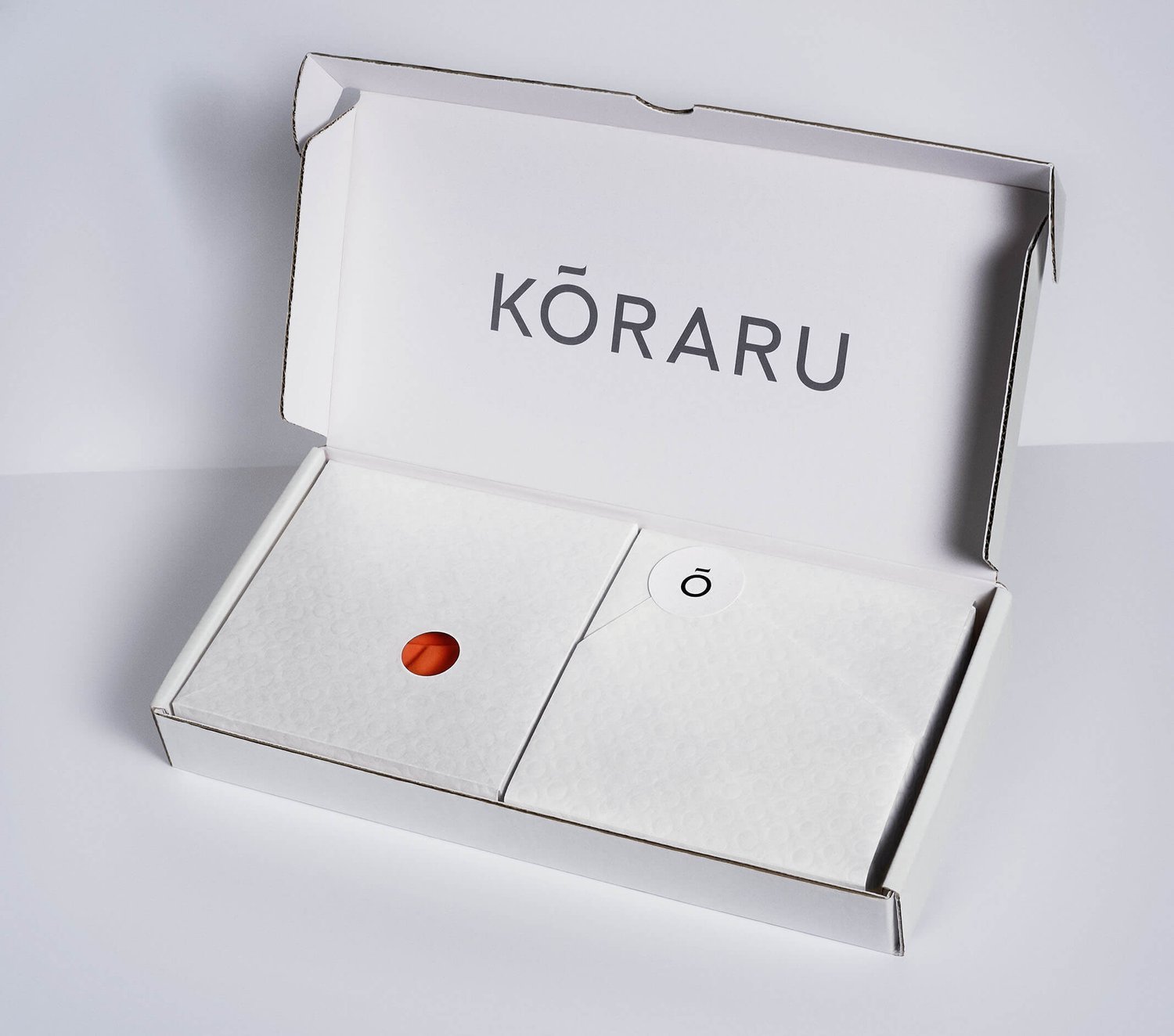KORARU - CIRCULAR PACKAGING AS BRAND STATEMENT
In its role as Kōraru’s brand guardian, SUM was involved in numerous aspects of the launch of circular swimwear brand, from strategy to brand identity, and website design to campaign shoot.
As the project progressed, one of the most involving and exciting aspects became the creation of a range of new sustainable packaging formats, using new sources of 100% recyclable materials.
Kōraru’s swimwear itself is made from Econyl® which is manufactured using regenerated plastics, including old fishing nets. Recognising that the brand’s responsibility to the planet should not end with sustainable garments alone, the brand and agency team decided as one to also turn Kōraru’s packaging into an active demonstration of the brand’s circular business model.
Each element of the packaging was then constructed with an innovative approach that involved the use of a range of breakthrough sustainable materials, and wherever possible re-usable energy and water-saving processes were applied in making them.
Boxes: Intentionally created in a waste-reducing, minimal design, Kōraru’s boxes are lined with Shiro Alga Carta. A pioneering sustainable material, this is a paper alternative made from algae sourced in Norway, France and Ireland - areas where having an excess of the algal bloom would otherwise harm the fragile marine ecosystem. Once used, Shiro Alga Carta can be fully recycled with household waste.
Origami Carriers: Inspired by Kōraru’s deep-rooted respect for Japanese lifestyle, the swimwear comes wrapped in an origami envelope made from Paptic Tringa® - an innovative cellulose material crafted in an eco-conscious way with wood fibres sourced from sustainably-managed forests. A 100% recyclable alternative to plastic, Paptic Tringa® has a uniquely durable quality, while also being soft and luxurious to the touch, meaning that it can be reused time and time again.
Totes: Each of Kōraru’s tote bags is made from 100% Oeko-tex certified organic and renewable cotton fibre. Requiring less energy for processing than synthetic fibres, cotton is also biodegradable, meaning at the end of its life span it can be returned to the earth to enrich the soil.
At SUM we believe that sustainability should not start and end with your product but should inspire each and every aspect of the business.
If you would like to speak with SUM about your brand’s intentions for the creation of beautifully-designed sustainable packaging, please email us.
Looking to take your brand further?
Explore our specialist services for luxury brands:



